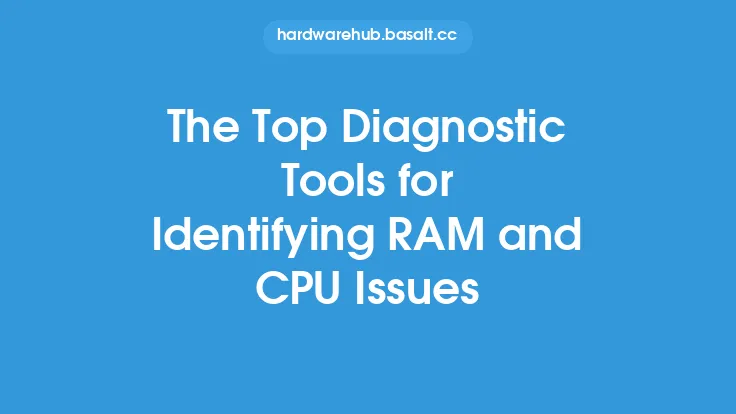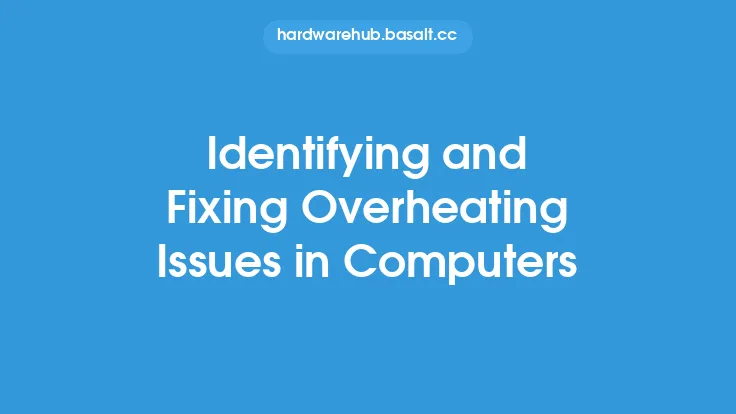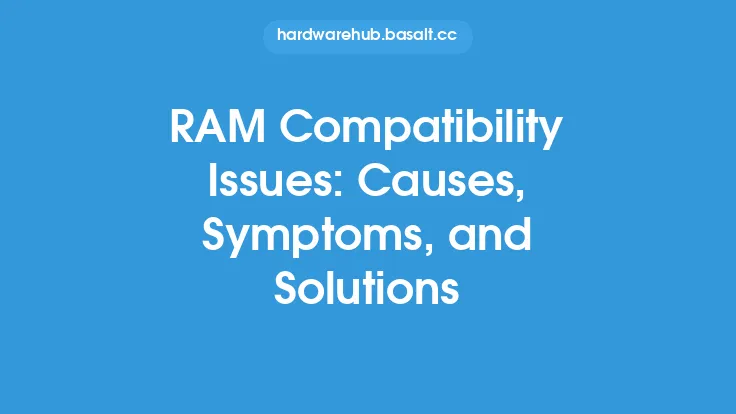When dealing with computer hardware, one of the most critical components is the Random Access Memory (RAM). It plays a vital role in the overall performance and functionality of a system. However, like any other component, RAM can also be prone to errors, which can significantly impact the system's stability and efficiency. Identifying and fixing RAM-related errors is essential to ensure the smooth operation of a computer. This process involves understanding the types of errors that can occur, the tools and techniques used for diagnosis, and the methods for resolving these issues.
Understanding RAM Errors
RAM errors can manifest in various ways, including but not limited to, system crashes, freezes, blue screens of death (BSOD), and data corruption. These errors can be caused by a range of factors, such as physical damage to the RAM modules, overheating, voltage fluctuations, and compatibility issues. It's also possible for RAM errors to be intermittent, making them challenging to diagnose. Understanding the nature of these errors is the first step towards identifying and fixing them. This involves recognizing the symptoms, such as unexpected reboots or the system failing to boot at all, and understanding how different types of RAM (e.g., DDR3, DDR4, DDR5) might have specific error patterns or troubleshooting requirements.
Diagnostic Tools and Techniques
Several diagnostic tools and techniques are available for identifying RAM-related errors. One of the most common methods is running a memory stress test using software tools like MemTest86+, Prime95, or OCCT. These tools stress the RAM to its limits, helping to identify any faults or weaknesses. Another approach is to use the built-in memory diagnostic tools that come with some operating systems, such as Windows Memory Diagnostic. Physical inspection of the RAM modules for signs of damage or corrosion can also be beneficial. In some cases, swapping RAM modules or trying them in different slots can help isolate the problem. For more advanced users, using a multimeter to check the voltage levels and ensuring they are within the specified range for the RAM can provide additional insights.
Fixing RAM Errors
Once a RAM error has been identified, the next step is to fix it. The approach to fixing RAM errors can vary depending on the cause of the problem. For physically damaged RAM modules, replacement is usually the only option. In cases where the issue is due to overheating, ensuring proper airflow within the case and possibly adding additional cooling can resolve the problem. Voltage fluctuations can often be addressed by adjusting the settings in the BIOS or using a voltage regulator. Compatibility issues might require upgrading the motherboard or using RAM modules that are known to be compatible with the system. It's also important to ensure that the RAM is properly seated and secured in its slots, as a loose connection can cause errors.
Preventive Measures
Preventing RAM errors from occurring in the first place is always better than having to fix them after they happen. One of the key preventive measures is to ensure that the system is properly cooled. This includes making sure that the case has good airflow and that the RAM and other components are not overheating. Regularly cleaning dust from the case and components can also help prevent overheating issues. Choosing high-quality RAM modules from reputable manufacturers can reduce the likelihood of errors due to manufacturing defects. Additionally, avoiding overclocking or, if overclocking is necessary, doing it carefully and within safe limits, can help prevent voltage-related issues.
Advanced Troubleshooting
For more complex or persistent RAM errors, advanced troubleshooting techniques may be necessary. This can include using specialized hardware tools to test the RAM, such as RAM testers that can diagnose problems at the chip level. Advanced users might also use BIOS settings to adjust the RAM timings and voltages, which can sometimes resolve compatibility or performance issues. In some cases, flashing the BIOS to the latest version or using a different BIOS version can fix issues related to RAM compatibility or functionality. It's also worth noting that some motherboards have features like ECC (Error-Correcting Code) memory, which can detect and correct single-bit errors, providing an additional layer of reliability.
Conclusion
Identifying and fixing RAM-related errors is a critical aspect of maintaining a computer's performance and stability. By understanding the causes of RAM errors, using the right diagnostic tools and techniques, and applying appropriate fixes, users can resolve these issues and ensure their system runs smoothly. Preventive measures, such as proper cooling and using high-quality components, can also play a significant role in minimizing the occurrence of RAM errors. Whether you're a beginner or an advanced user, having a good grasp of RAM troubleshooting can save time, reduce frustration, and extend the lifespan of your computer's hardware.





